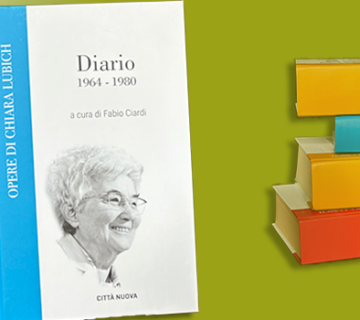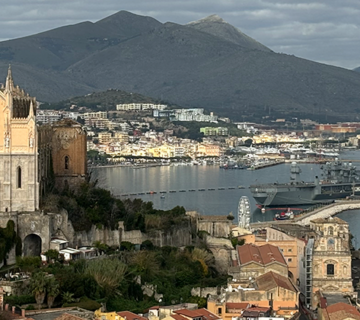 “Rediscovering God’s plan for today” was the theme for the three conferences of Bishops Friends of the Focolare Movement which were held in May and June. The central topic was one which was of common interest to all: the desire to experience fraternal communion among Bishops, entering more deeply into the spirituality and life of communion. Different characteristics and nuances of each country were highlighted at each of the meetings.
“Rediscovering God’s plan for today” was the theme for the three conferences of Bishops Friends of the Focolare Movement which were held in May and June. The central topic was one which was of common interest to all: the desire to experience fraternal communion among Bishops, entering more deeply into the spirituality and life of communion. Different characteristics and nuances of each country were highlighted at each of the meetings.
Sixteen Catholic bishops from South Africa, Angola, Tanzania, Uganda, Burundi and Kenya gathered on 23-27 May at one of the Focolare’s little towns in Nairobi, Kenya, called Mariapolis Piero. They had many opportunities to share both personal and pastoral experiences, with a look at some of the challenges being faced by the African continent today. For more information about the Kenyan conference go to: Nairobi: Meeting for Bishop Friends of the Focolare.
 The May – June event in Moramanga, Madagascar was very well attended with nine bishops who had come from all over the island, the fourth largest island of the world. Among them were Bishop Antonio Scopelliti who had first arrived on the island as a young missionary, and Bishop Amgatondrazaka who for many years has been a promoter of communion among bishops, priests and laity. But there were also various bishops who are natives of Madagascar itself, such as Archbishop Michel Malo (Archbishop of Antsiranana) and the Apostolic Nuncio Archbishop Eugene Martin Nugent.
The May – June event in Moramanga, Madagascar was very well attended with nine bishops who had come from all over the island, the fourth largest island of the world. Among them were Bishop Antonio Scopelliti who had first arrived on the island as a young missionary, and Bishop Amgatondrazaka who for many years has been a promoter of communion among bishops, priests and laity. But there were also various bishops who are natives of Madagascar itself, such as Archbishop Michel Malo (Archbishop of Antsiranana) and the Apostolic Nuncio Archbishop Eugene Martin Nugent.
The final event took place in Cameroon. It began on 7 June in Bamenda and ended on 11 June in the village of Fontem. Two Chiefs of the Bangwa tribe were there to welcome the bishops. They expressed their delight at receiving these distinguished visitors to a land that bears witness to the “new evangelization” that has been launched by the experience of unity among the Bangwa people and the Focolare. During their visit to the hospital, college, and carpentry workshop, the bishops appreciated the simple daily Gospel life, and especially the “love with which the activities are carried out.”
The memory of Bishop Paul Verdzekov was very alive among them. He died last year, leaving behind a powerful life witness that was rooted in focolare spirituality. “He was a father for all of us,” said Bishop Ntep, bishop of Edéa, Cameroon. After having visited his tomb, they celebrated Mass at the cathedral in the presence of many of the faithful for whom his memory is still very much alive. The bishops used these days to discuss topics that are of great interest to them: effects of the Economy of Communion in Africa; formation of formators; and the Apostolic Exhortation Verbum Domini.
Another important topic was that of Inculturation. In this regard, Bishop Ntalou, bishop of Garoua, Cameroon said: “Just as you need the effort to know the ‘seeds of the Word’ in our cultures, you also need the effort to know the light of the Gospel, because it is in Jesus, and in Jesus alone, that we find the fullness of salvation.”
 During the final farewell, Bishop Bushu, bishop of Buea, Cameroon, seemed to summarize what everyone else was thinking: “I thank God for this week, for having lived in His presence. . .”. “Holiness is a gift, not an activity,” concluded Cardinal Vlk, underscoring how everything is a gift from God: “Our true identity lies in living in harmony with this gift (that we have) received.”
During the final farewell, Bishop Bushu, bishop of Buea, Cameroon, seemed to summarize what everyone else was thinking: “I thank God for this week, for having lived in His presence. . .”. “Holiness is a gift, not an activity,” concluded Cardinal Vlk, underscoring how everything is a gift from God: “Our true identity lies in living in harmony with this gift (that we have) received.”
At each of the three meetings, the culminating moment was the “Pact of Mutual Love”, which the bishops made with each other during a Eucharistic celebration.


 Italiano
Italiano Español
Español Français
Français Português
Português


